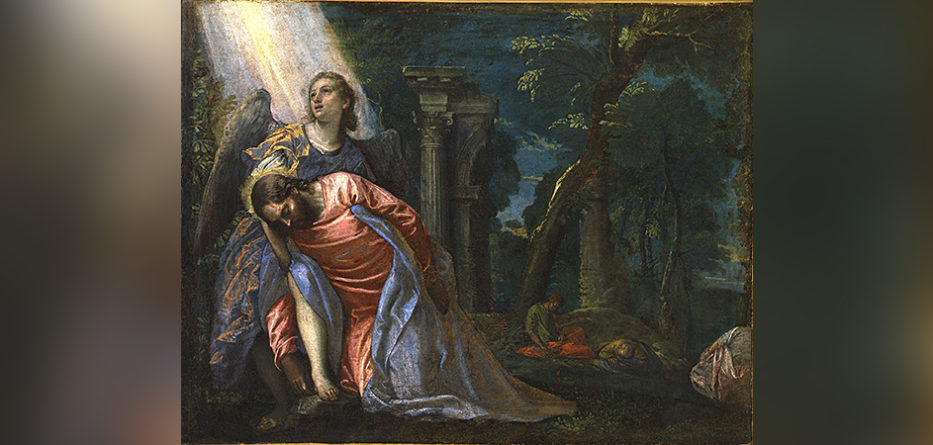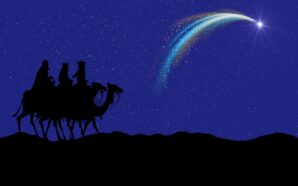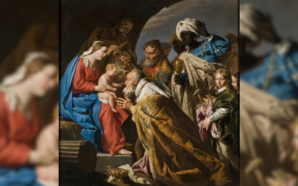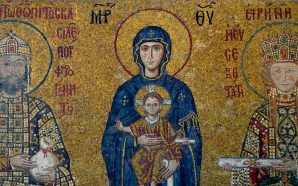The night before he died, Jesus struggled mightily to accept his Father’s will. The Gospels describe him in the Garden of Gethsemane, prostrate on the ground, “sweating blood”, and begging his Father to save him from the brutal death that awaited him. Then, after he finally surrenders his will to his Father, an angel comes and strengthens him.
This begs a question: where was the angel when, seemingly, he most needed it? Why didn’t the angel come earlier to strengthen him?
Two stories, I believe, can be helpful in answering this.
The first comes from Martin Luther King Jr. In the days leading up to his assassination, he met angry resistance and began to receive death threats. He was courageous, but he was also human. At a point, those threats got to him. Here is one of his diary entries.
“One night towards the end of January, I settled into bed late, after a strenuous day. Coretta had already fallen asleep and just as I was about to doze off the telephone rang. An angry voice said, ‘Listen, nig.., we’ve taken all we want from you; before next week you’ll be sorry you ever came to Montgomery.’ I hung up, but I couldn’t sleep. It seemed that all of my fears had come down on me at once. I had reached a saturation point.
I got out of bed and began to walk the floor. Finally, I went to the kitchen and heated a pot of coffee. I was ready to give up. With my cup of coffee sitting untouched before me, I tried to think of a way to move out of the picture without appearing a coward.
In this state of exhaustion, when my courage had all but gone, I decided to take my problem to God. With my head in my hands, I bowed over the kitchen table and prayed aloud. The words I spoke to God that midnight are still vivid in my memory.
‘I am here taking a stand for what I believe is right. Now I am afraid. The people are looking to me for leadership, and if I stand before them without strength and courage, they too will falter. I am at the end of my powers. I have nothing left. I’ve come to the point where I can’t face it alone.’ At that moment I experienced the presence of the Divine as I had never experienced Him before.” (Strive Toward Freedom)
Notice at what point in his struggle the angel appears.
In her autobiography, The Long Loneliness, Dorothy Day shares this story. As a young woman, along with the man she loved, she had been somewhat militant in her unbelief. Indeed, their reluctance to enter the institution of marriage was meant as a statement of their non-acceptance of traditional Christian values. Then she conceived a child and its birth was the beginning of a radical conversion for her. The joy she felt holding her baby convinced her that there was a God and that life had a loving purpose. She became a Roman Catholic, much to the chagrin of the man she loved, the father of her child: he gave her an ultimatum: if you have this child baptized, our relationship is ended. She had the child baptized and lost that relationship (though they continued as friends). However, she now found herself a single mother with no job and no real vision or plan as to where to go now in life.
At one point, she became desperate. She left the child in the care of others and took a train from New York City to the Shrine of the Immaculate Conception in Washington, D.C. In her autobiography, she describes how she prayed that day, how desperate her prayer was. Like Jesus in Gethsemane and Martin Luther King in Montgomery, her prayer was one of raw need and helplessness, of an admission that she no longer had the strength to go on. Essentially, she said this to God: I have given up everything for you and now I am alone and afraid. I don’t know what to do and am lacking strength to carry on in this commitment.
She prayed this prayer of helplessness, took the train back to New York, and not long after found Peter Maurin sitting on her doorstep, telling her that he had heard about her and that he had a vision of what she should now do, namely, to start the Catholic Worker. That set the path for the rest of her life. The angel had come and strengthened her.
Notice at what point in these stories the angel makes its appearance – when human strength is fully exhausted. Why not earlier? Because up to the point of exhaustion, we don’t really let the angel in, relying instead on our own strength. But, as Trevor Herriot says, “Only after we have let the desert do its full work in us will angels finally come and minister to us.”
Used with permission of the author, Oblate Father Ron Rolheiser. Currently, Father Rolheiser is serving as President of the Oblate School of Theology in San Antonio, Texas. He can be contacted through his website, www.ronrolheiser.com. Now on Facebook www.facebook.com/ronrolheiser








